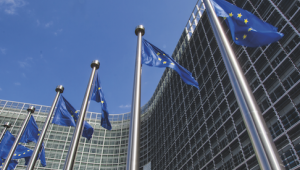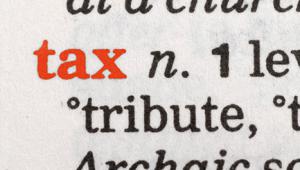The ‘sweetheart deals’ between the Irish tax authorities and Apple’s Irish subsidiaries meant that one Apple business in Ireland paid an effective tax rate of 0.005% in 2014, or €50 per €1m in profit made by the company that year.
Announcing the ruling today Margrethe Vestager, the European commissioner in charge of competition policy, said that the decision sends a clear message: “Member states cannot give unfair tax benefits to selected companies no matter if they are European or foreign, big or small, part of a group or not.”
The multi-billion dollar ruling is the biggest tax penalty ever handed down by the commission, dwarfing the €1.4bn fine handed to French energy group EDF. It is based on two tax deals that the commission said “substantially and artificially lowered” the tax paid by Apple in Ireland since the first deal was agreed in 1991.
The rulings related to two Irish Apple subsidiaries, Apple Sales International, which handles the sale and manufacture of Apple products in Europe, the Middle East, Africa and India, and Apple Operations Europe, which manufactures Apple computers.
In them, the Irish tax authorities endorsed internal splits within the two companies. As a result of these splits, both companies created an internal ‘head office’ where almost all recorded profits were attributed.
The commission found that in both cases, these head offices only existed on paper. They had no employees, no premises and no real activities, aside from occasional board meetings.
While Apple Sales International was subject to Irish corporation tax – which, at just 12.5%, is already a source of frustration for other European Union member states – this ‘head office’ was not taxed in Ireland or anywhere else.
This meant that, for example, of the €16bn in profit recorded by Apple Sales International in 2011, less than €50m was taxed. This equates to a tax rate of 0.05%, or €500 in taxes for every €1m in recorded profits.
In 2014, this effective tax rate dropped to 0.005%, or €50 for every €1m in recorded profits.
While Apple Sales International was responsible for the bulk of unpaid taxes, the same structure and rulings saw Apple Operations Europe also leave almost all of its profits untouched by tax.
The commission deemed that the tax breaks granted to Apple by Ireland had no factual or economic justification, and amounted to illegal state aid.
Irish authorities are now responsible for recovering up to €13bn in back taxes plus interest from Apple, which covers the 10 years before the commission first requested information from Apple in 2013, although the illegal tax rulings span back to 1991. Apple terminated the deal with the Irish authorities last year.
The repayment to Ireland can be reduced however, if other countries argue some of the funds should be due to them.
Vestager invited other countries around Europe, the Middle East, Africa and Asia to use the commission’s findings and data to determine whether some of the profits recorded in Ireland but related to sales elsewhere should have been recorded and taxed in their countries.
Apple has also argued that the billions it brings in via its Irish unit should be taxed in the US, where its research and development is based. Vestager agreed that if the two companies are required to pay more funds to their US parent company, this would reduce the back taxes paid to Ireland.
However, the company, which has been subject to the European Commission investigation for its activities in Ireland since 2014, has said it will appeal the ruling and that it is confident the decision will be reversed. Tim Cook, Apple's chief executive, pointed out that Apple is the largest taxpayer in Ireland, brought much needed investment to Cork, its Irish base, and created thousands of jobs in the city and many more across Europe.
He said the commission is overriding Irish law and international tax norms and that the judgement, which "has no basis in fact or law", will harm investment and job creation in Europe.
"We never asked for, nor did we recieve, any special deals. We now find ourselves in the unusual position of being ordered to retroactively pay additional taxes to a government that says we do not owe them any more than we have paid," Cook said.
Irish finance minister Michael Noonan also “profoundly disagrees” with the commission’s judgement, and is now seeking cabinet approval to appeal the decision.
Noonan said this was “necessary to defend the integrity of our tax system; to provide certainty to businesses; and to challenge the encroachment of EU state aid rules into the sovereign member state competence of taxation”.
Earlier this week, the US Treasury also criticised the European Commission’s investigations into corporate tax breaks. In a white paper, it accused the commission of departing from the international status quo on tax norms.
But Vestager stressed today that “this is real change, and change for the better”.
The commission has two in-depth state aid investigations still underway, regarding Amazon and McDonalds in Luxembourg. Today’s ruling follows other high-profile decisions against Starbucks and Fiat Finance.













